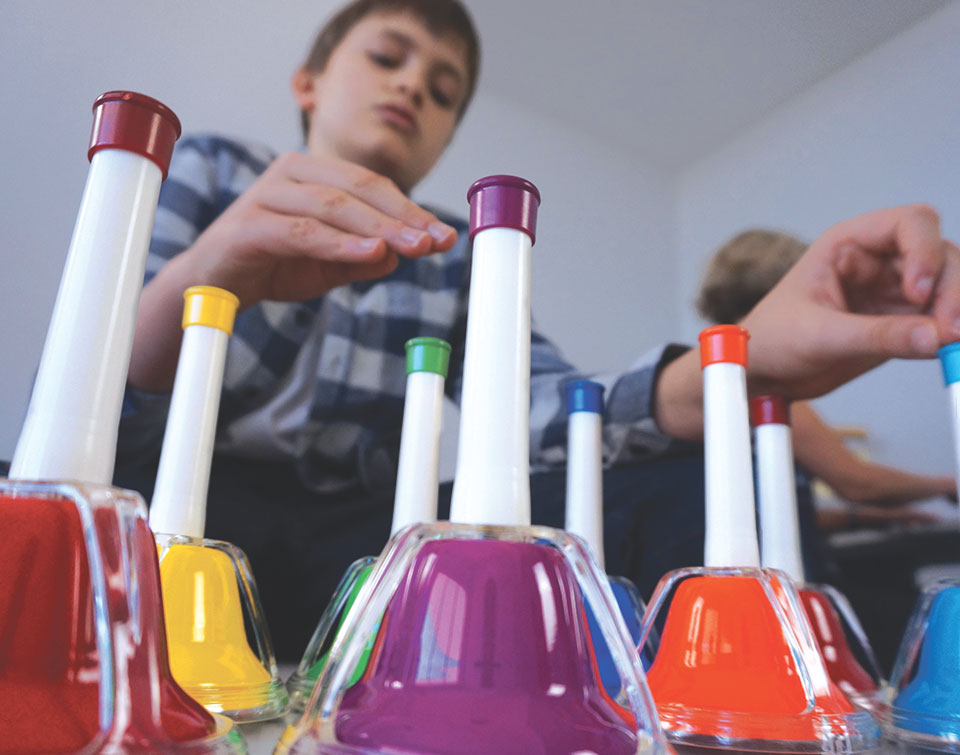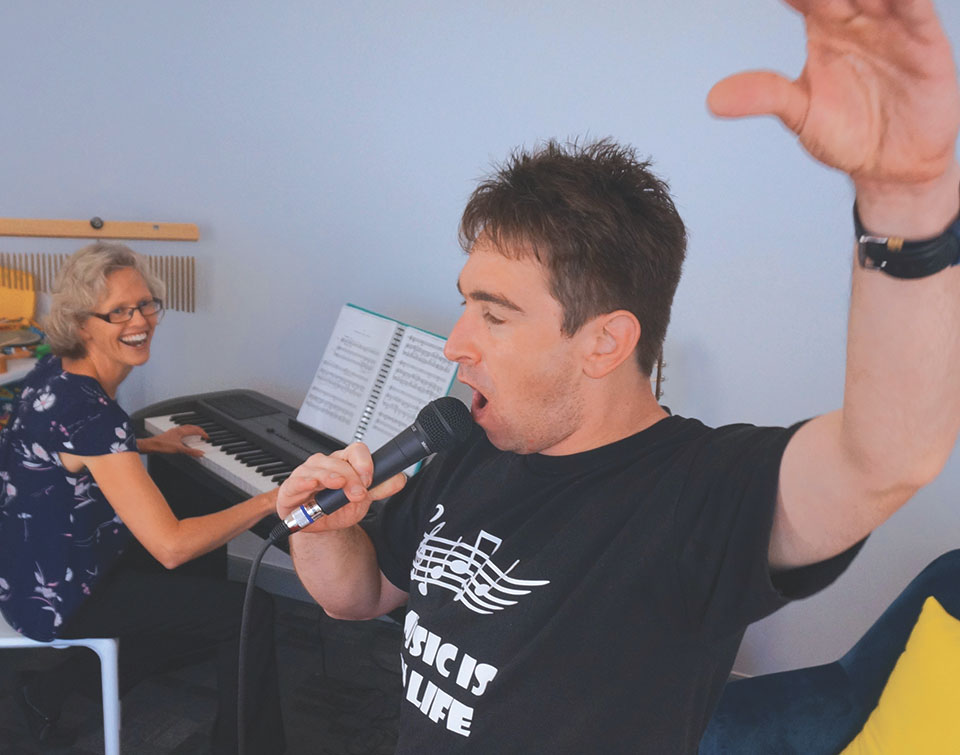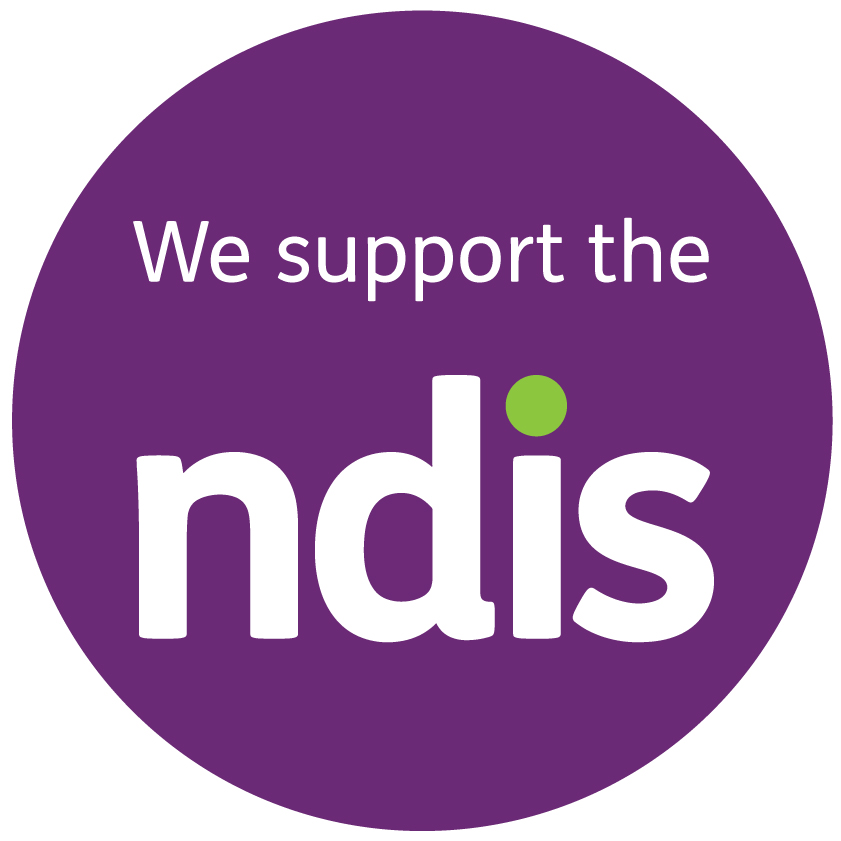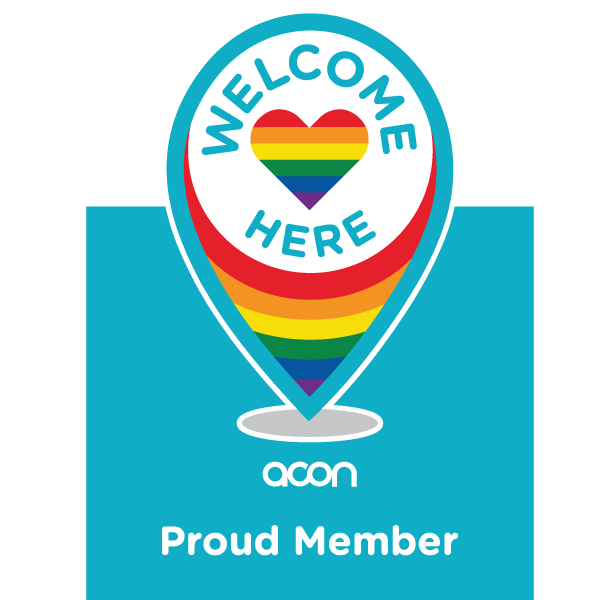WHAT IS MUSIC THERAPY?
What is Music Therapy?
“the intentional use of music to support people to improve their health, functioning and wellbeing. It is a research-based practice and profession by a university-trained professional who is registered with the Australian Music Therapy Association Inc. Registered music therapists (RMT) draw on an extensive body of research and are bound by a code of ethics that informs their practice.”
Music therapy has been shown to:
- Support Development
- Increase Engagement & Participation
- Promote wellness through managing anxiety and stress, alleviating pain
and promoting relaxation - Improve physical, cognitive, communication (both verbal and non-verbal),
self-expression and social skills - Support Learning
- Support Sensory Processing and Develop Self-Regulation
- Enhance Memory

What Does Music Therapy Look Like
Music therapy will look and sound differently for everyone. Usually the music therapist will meet with you, to get to know you through talking and playing music together and to work out what areas you want to focus on in music therapy and what activities will best suit you. Once this assessment is done the music therapist will tailor the sessions to your specific needs.
In a music therapy session you might spend some time talking and some time making music through singing or playing instruments. Sometimes you will move or dance to music, and sometimes you will listen to music. Often you will work on activities across several sessions, sometimes you will just do something once. Music therapy sessions are flexible and can be adapted to meet your needs on any particular day, as well as focus on what is going to benefit you over the long term.
Our Music Therapy Activities
- Active music making through singing, vocalising, drumming and instrument playing
- Both structured and unstructured music activities
- Practicing social skills such as listening, turn taking, sharing, being listened to, following instructions and leading interactions
- Opportunities for self-expression and creativity
- Singing and playing familiar music
- Improvising music, or making it up in the moment
- Opportunities for extending and exploring communication skills
- Movement to music
- Music listening
- Discussions about music
- Song writing
- Exploring your own responses to music
- Relaxation and fun!
At Newcastle Music & Art Therapy in Warners Bay we have purpose built rooms for both individual and group music therapy sessions. We can help you choose which services will suit you best.
Please get in touch to discuss this further.
Who Comes to Music Therapy?
But I’m Not Musical!
Music therapists believe that everyone is musical. We all have a heart that beats to a rhythm, we all have a story that is our song. No skill or knowledge is needed to benefit from music therapy. It’s the music therapist’s job to help you tap in to “your” music. It’s about finding the music in you!
No two people are the same so every session is different and is tailored to you. We might sing, we might play instruments, we might listen to your favourite music and talk about what it means to you. Whatever we do, it’ll be about you and the music. So don’t worry, you don’t need to have any previous experience as a musician. Just come along as you.

At Newcastle Music & Art Therapy, we’re all about creating a space where everyone feels welcome and valued. We are a neuroaffirming practice, proudly support people with disabilities, LGBTQIA+ folks, and Indigenous peoples.
It’s important to us that everyone feels included, heard and seen. We’re here to break down barriers, celebrate our differences, and make sure everyone can be themselves and shine.

Newcastle Music & Art Therapy operates on Awabakal country. We acknowledge the Awabakal people as the traditional custodians of the Warners Bay region and pay our respects to Awabakal elders past and present.
We are committed to a positive future for the Aboriginal community.

Get In Touch
Our Address
16/363 Hillsborough Road
Warners Bay NSW 2282
